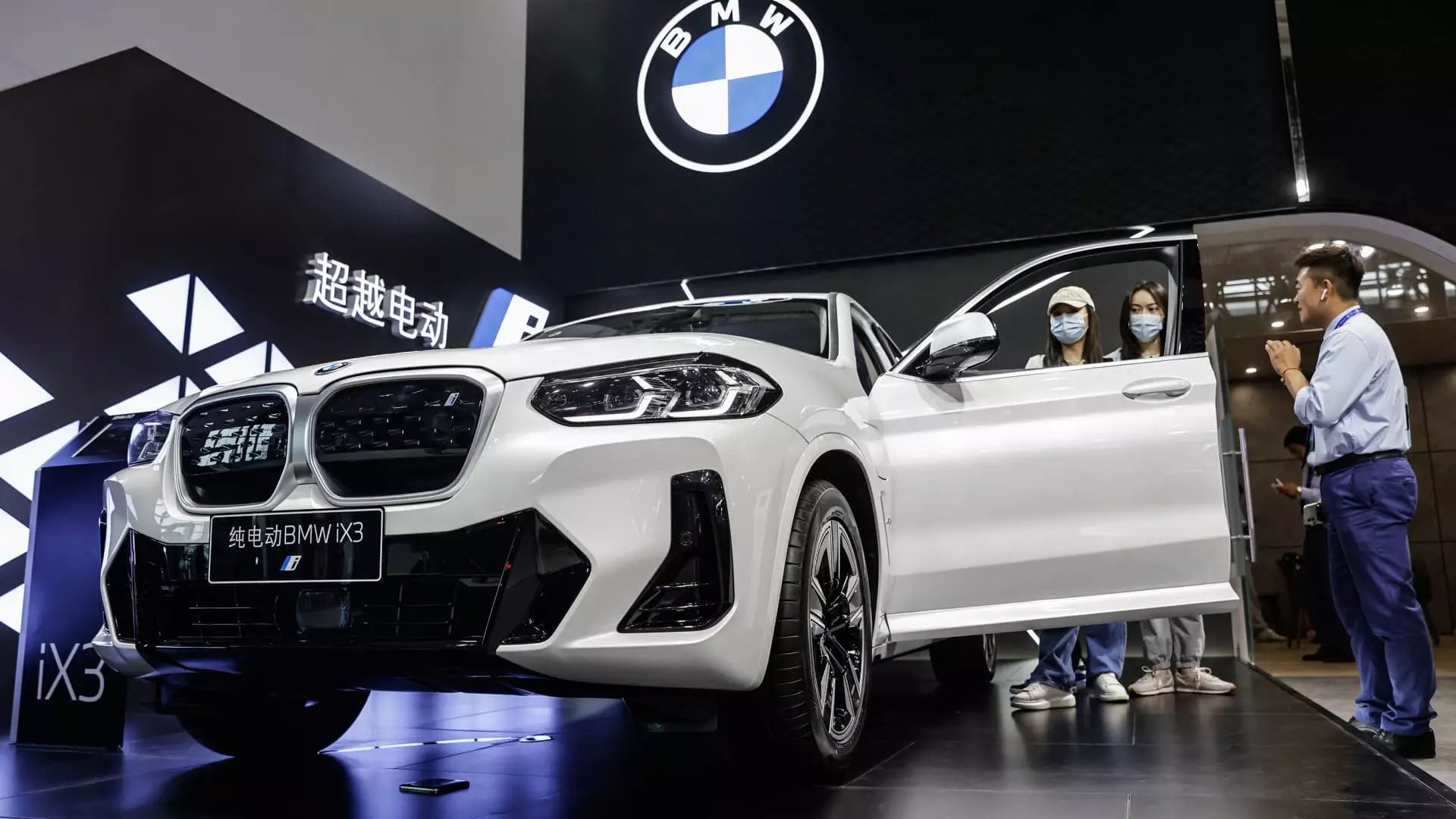BMW is facing a staggering reality check as their net profits plummeted by an alarming 36.9% in 2024, dropping to 7.68 billion euros ($8.32 billion). This dramatic decline can largely be attributed to continuing subdued demand in the Chinese market, which has increasingly become a volatile space for automotive giants. China, once considered the promised land for luxury cars, is now showing signs of a deep-rooted malaise that could have long-standing implications. The stark figure is a chilling reminder that even revered automotive brands like BMW aren’t immune to the forces of economic downturns, nor can they escape the harsh realities of shifting consumer behaviors.
Impact of Tariffs and Geopolitical Tensions
The company’s forecast for its automotive earnings margin, estimated to hover between 5% to 7% in 2025, raises eyebrows when compared to the 6.3% margin achieved last year. BMW’s timid projections are directly tied to the bitter reality of tariffs and global geopolitical uncertainty. As a center-left liberal observer, it’s hard to ignore that these tariffs, which include a staggering 20% on Chinese imports and 25% on automotive components from Canada and Mexico, serve only to stifle not just BMW, but potentially the entire auto industry. One can’t help but feel the pain of an industry grappling with these punitive measures that undermine innovation and competitiveness.
The Supply Chain Crisis: A Self-Inflicted Wound?
Adding insult to injury, BMW’s delivery figures for last year — approximately 2.45 million units — fell short of the 2023 figure of 2.55 million. Much of this missed expectation can be blamed on a temporary halt in deliveries due to a faulty braking system supplied by Continental. This predicament appears to underscore a deeper issue: the automotive industry’s obsession with global supply chains that, while efficient, have also left it vulnerable to disruptions. It seems imprudent to place reliance on components from a network that can falter under pressure. This is not merely a logistical hiccup; it is potentially indicative of a greater systemic weakness in an industry that has often prioritized margins over reliability.
Call for a New Trade Paradigm
BMW’s CEO, Oliver Zipse, articulated a powerful sentiment about the ineffectiveness of tariffs in today’s interconnected global marketplace. His assertion that “everything is connected with everything” holds tremendous weight, especially in times when multinational corporations are navigating a complex web of supply chains. The notion that tariffs are necessary instruments to enhance competitiveness feels increasingly outdated. It’s noteworthy that Zipse advocates for free trade—an ethos that resonates well with the center-left liberal belief in open markets promoting growth and innovation. The irony lies in the fact that while trade barriers are being erected in an attempt to safeguard industries, they may, in reality, be chaining them down.
Looking Ahead: Challenges and Opportunities
Navigating the future won’t be easy for BMW, especially with the continuing “challenging situation in China” and looming tariff hikes on the horizon. However, every challenge presents an opportunity for reinvention. It is crucial for corporations to reassess their strategies: pivoting towards local supply chains and investing in sustainable manufacturing practices may hold the key to resilience. As consumers become increasingly discerning, the pathway forward lies not just in pursuing profit margins but also in fostering a brand ethos rooted in quality, reliability, and ethical engagement with the global economy. The road ahead may be fraught with obstacles, but the ability to adapt could define not only BMW’s future but that of the entire automotive sector.


Leave a Reply